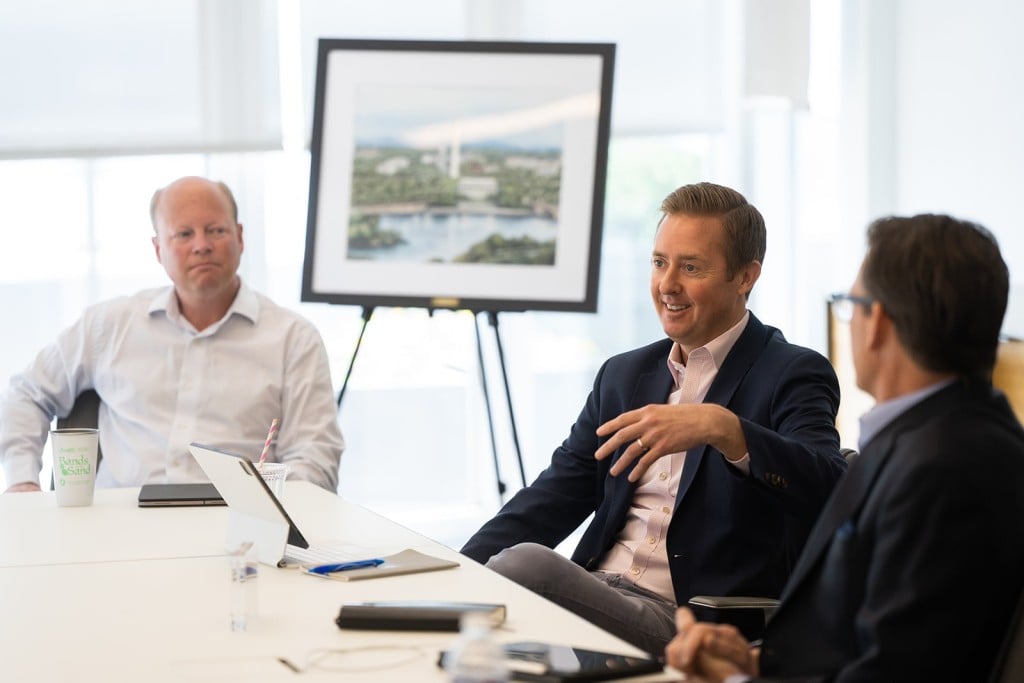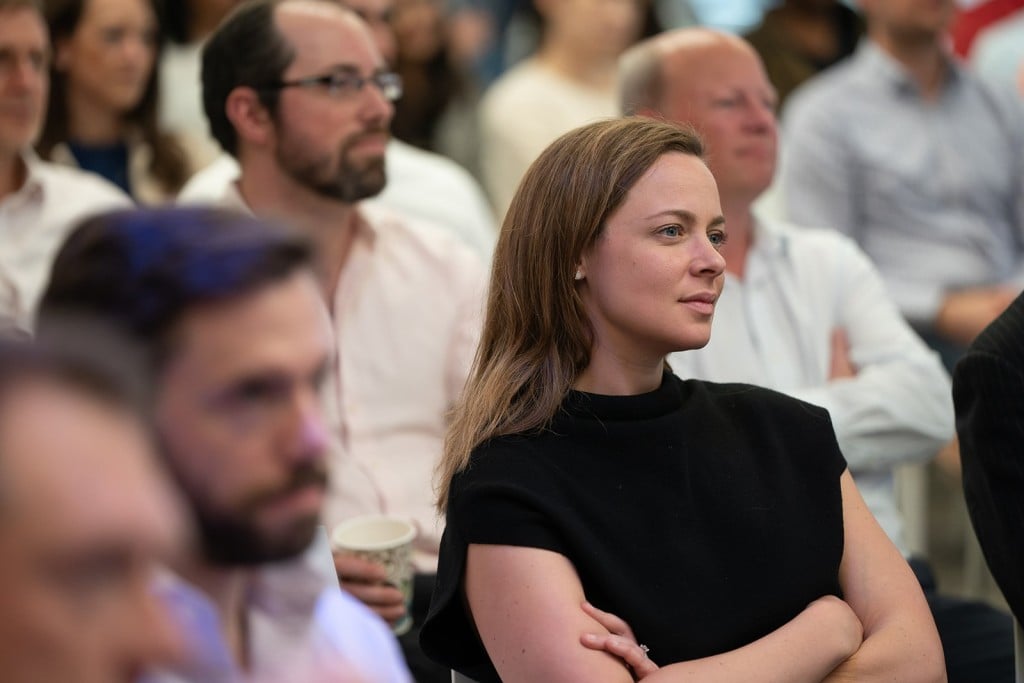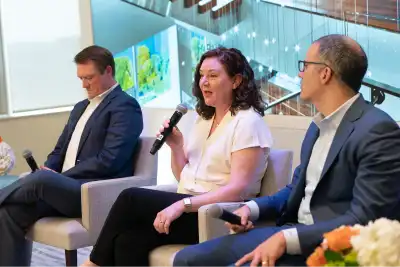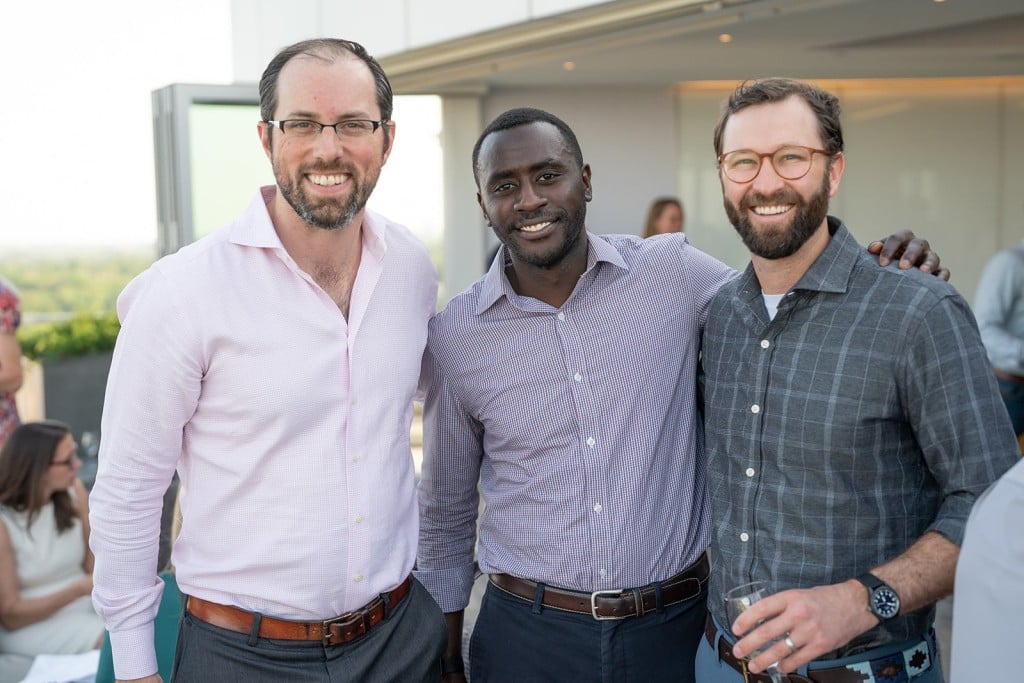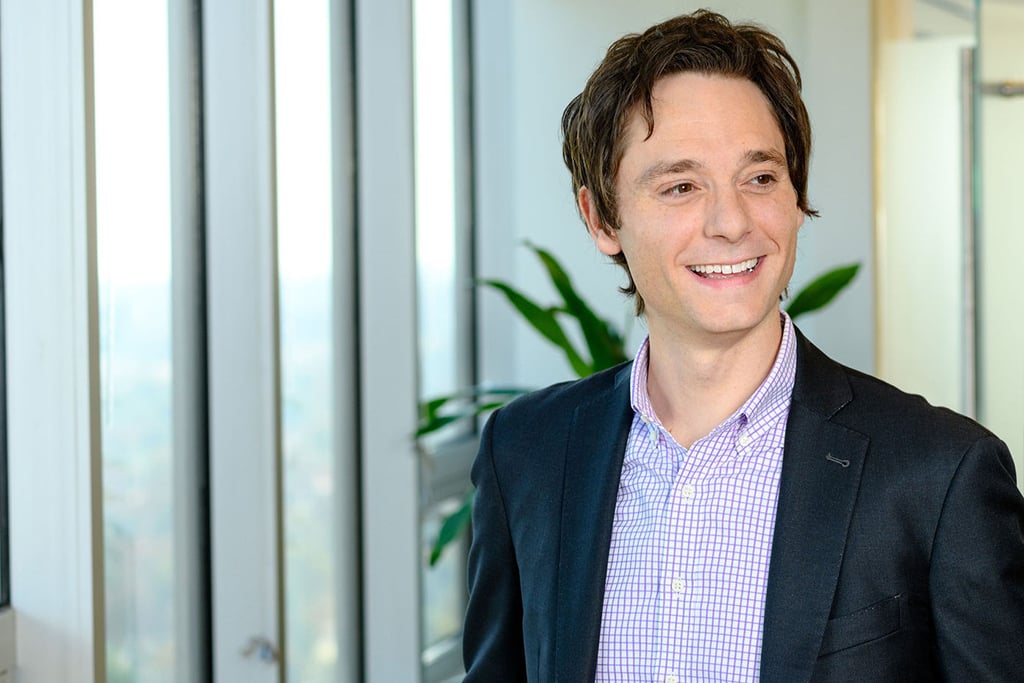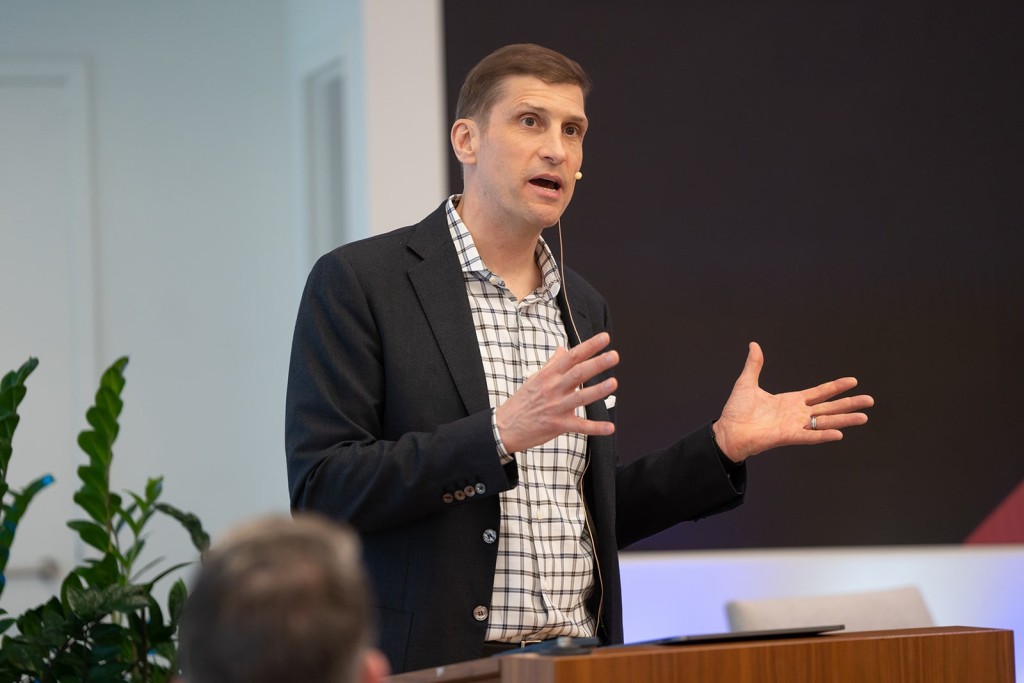Related Articles
At the Responsible Investing Symposium, cohosted by Sands Capital and the UVA Darden School of Business, investors, business leaders, and academics explored how to identify what matters most for long-term investors.
Regardless of paradigm shifts or new global challenges, we see resilience as key to navigating the shifting investment landscape. What matters today may not be what matters tomorrow, but our job as investors and business owners is to anticipate and adapt.
The investment landscape is shifting rapidly. With artificial intelligence (AI) reshaping industries, supply chains under geopolitical strain, and businesses racing to adapt to a changing workforce, the need for long-term thinking has never been greater.
Investors, business leaders, and academics gathered at Sands Capital’s Arlington, Virginia, headquarters to discuss what lies ahead. Overall, the symposium underscored how resilience is essential to navigating the new economy.
A Call for Stewardship in a Changing World
Frank M. Sands, CFA, CIO and CEO of Sands Capital, opened the symposium with a message that resonated throughout the event. Investing, he reminded the audience, is not about reacting to headlines or chasing short-term trends. Instead, it is about identifying what truly matters for sustainable growth and having the conviction to stay the course.
His remarks set the stage for a series of discussions exploring the intersections of investment strategy, technology, energy, and human capital management—each revealing both challenges and opportunities in the years ahead. Toni Irving, the Frank M. Sands Sr. Professor of Practice at UVA Darden, and Lex Suvanto, the Global CEO of Edelman Smithfield, opened the sessions with a discussion on emerging global business challenges and the role of strategic leadership in navigating them.
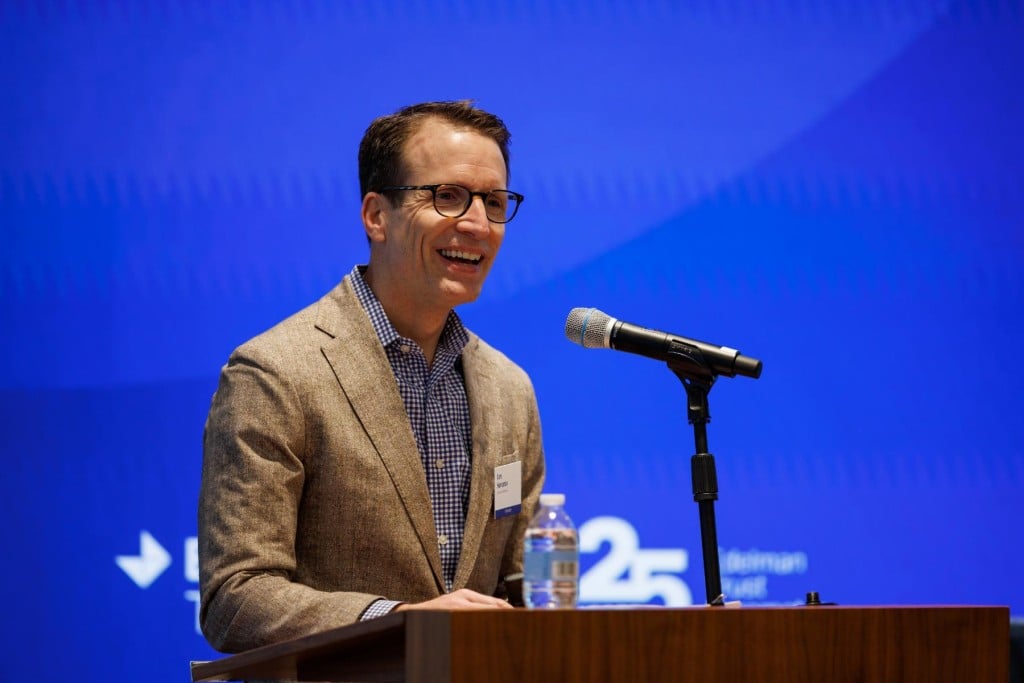
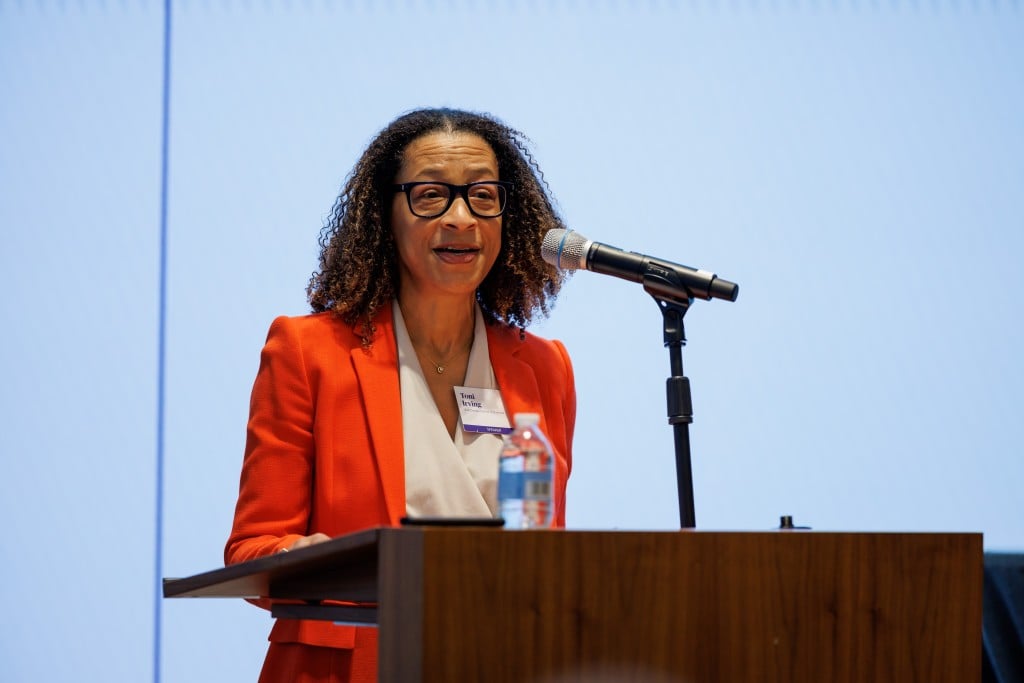
Long-Term Investing: Why Stewardship Still Matters
Members of Sands Capital’s investment team dug deeper, exploring how critical it is for long-term investors to continuously adapt while remaining disciplined in their approach. In their panel, Brian Christiansen, CFA, a senior portfolio manager and research analyst; Katherine Bates, a research analyst; and Karin Riechenberg, director of stewardship, centered their discussion on how governance, sustainability, and stewardship play an essential role in investment decisions.
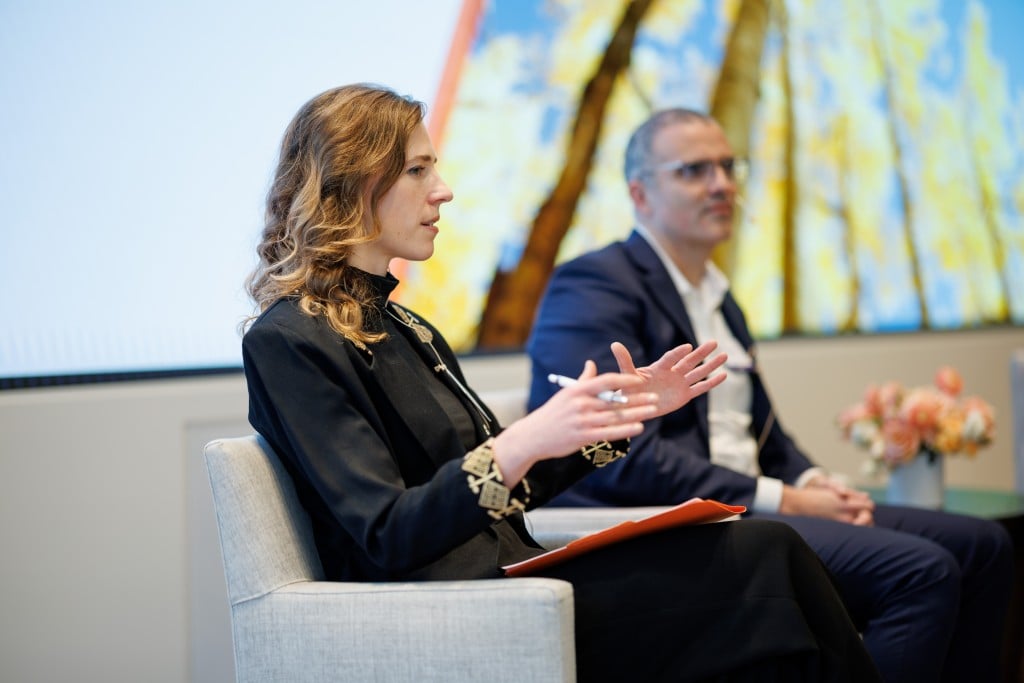
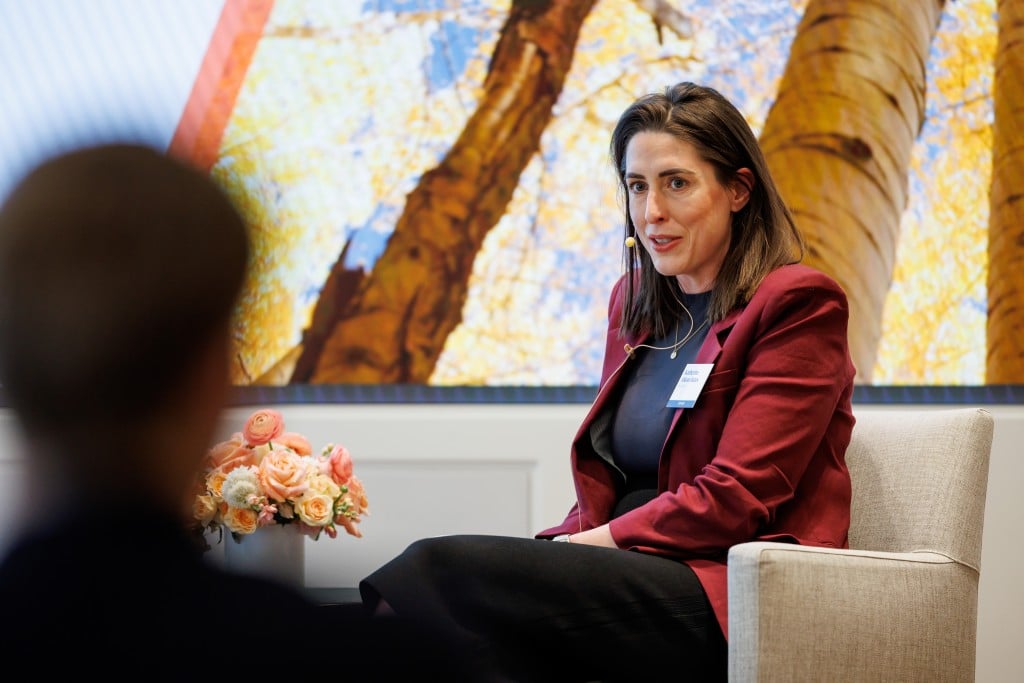
Panelists explored the challenge of integrating long-term stewardship principles in an era dominated by ESG scores and exclusionary investment strategies. While many investors focus on quantitative measures, the panelists emphasized a more qualitative, bottom-up approach—one that prioritizes deep research and engagement with company leadership.
The Tug-of-War Over Supply Chains
Participants agreed that few topics are as critical—or as complex—as the state of global supply chains. Geopolitical tensions, resource scarcity, and evolving regulations are making it harder than ever for companies to secure the materials they need.
A panel featuring industry leaders, including Vidya Mani from UVA Darden, Bob Walker from the Initiative for Responsible Mining Assurance, Catherine Tyson from Intel, and Daniel Pilling, a Sands Capital portfolio manager and senior research analyst, focusing on semiconductors and AI, explored these pressures in depth. The discussion highlighted the importance of ethical sourcing, investment in domestic manufacturing, and diversification of supply routes to help prevent future disruptions.
But it’s not just about logistics. Panelists stressed that consumers, regulators, and investors are increasingly demanding transparency and accountability: for example, the importance of cross-sector collaboration to help align incentives across the mineral supply chain (i.e., down-, mid-, and upstream). They agreed that companies that fail to meet these expectations risk falling behind, while those that integrate sustainability and ethical sourcing into their business models may have a competitive edge.
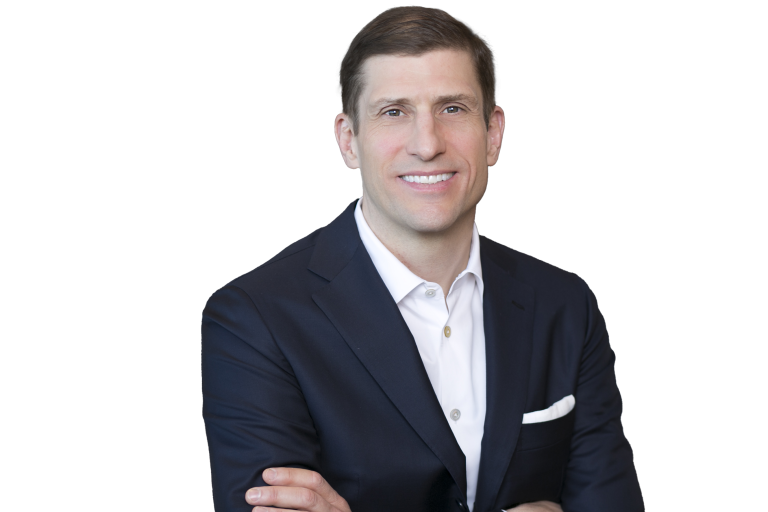
Artificial Intelligence and the Energy Dilemma
While AI promises to revolutionize industries, it comes with a consequence: an insatiable demand for energy.
As technology companies invest billions in AI infrastructure, the electricity required to power vast data centers is surging. Experts from Amazon, Constellation, and PointOne Data Centers, and UVA Darden’s Michael Lenox, discussed the growing strain on power grids. They explored how utilities are working to modernize their infrastructure and whether regulatory frameworks can keep up with the rapid expansion of AI-driven computing.
Can the grid keep up? And what role will renewable energy play in sustaining the AI boom? These were among the pressing questions debated throughout the session. The consensus: While innovation will help ease the strain, regulatory hurdles and infrastructure bottlenecks will pose serious challenges in the years ahead.
A Workforce in Transition
Beyond technology and supply chains, another shift is under way—one that is reshaping the very nature of work.
Anne Trumbore of UVA Darden’s Sands Institute for Lifelong Learning, Stuart Andreason from The Burning Glass Institute, Solange Charas of Columbia University and HCMoneyball, and Michael Rallo, CFA, a technology analyst at Sands Capital, tackled the growing expectation that companies invest in employee development. The workforce of the future, they argued, will be shaped by upskilling, flexibility, and purpose-driven leadership.
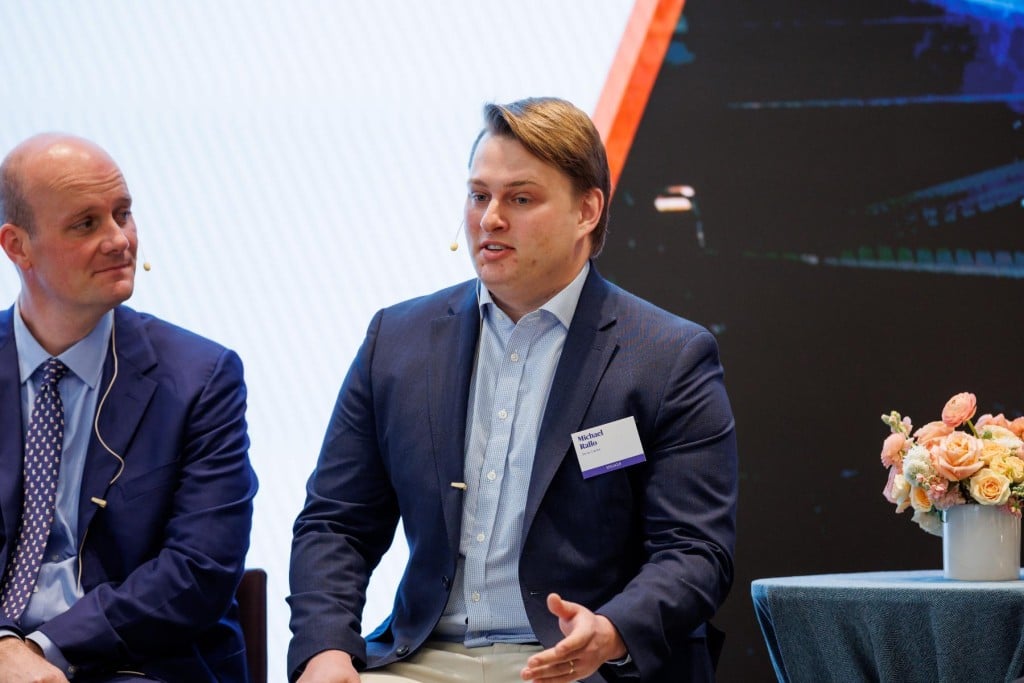
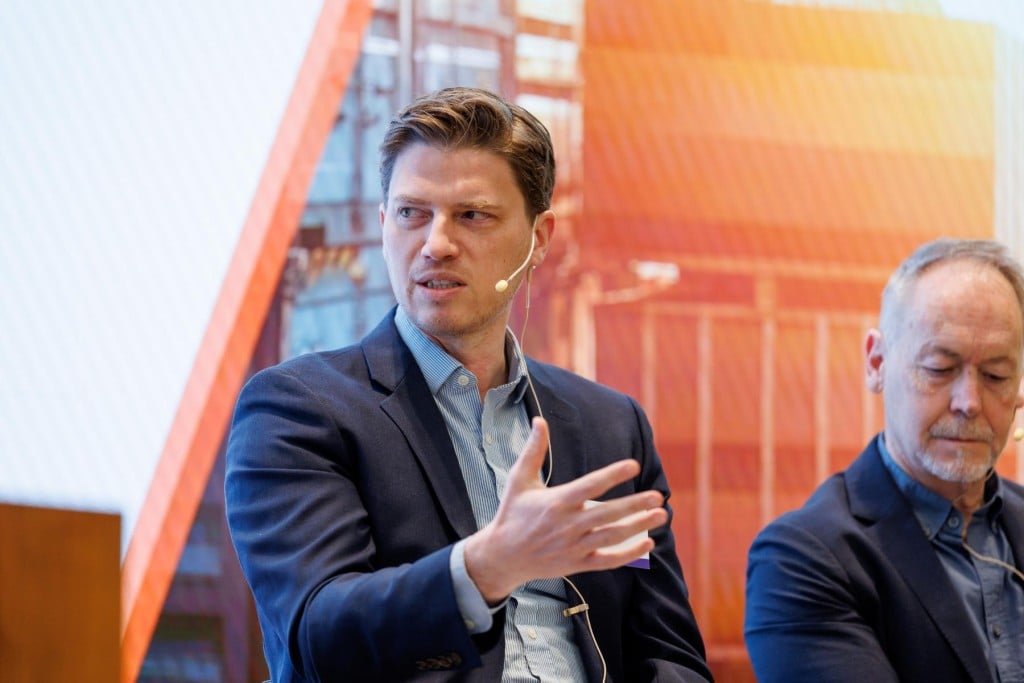
They concluded that companies that fail to adapt to these changes will find themselves struggling to attract and retain talent. Meanwhile, those that embrace lifelong learning and workforce reskilling may gain a decisive edge in an increasingly competitive market.
Lessons From the CEO of YETI
While the day was filled with discussions on emerging trends, Frank Sands led a fireside chat with Matt Reintjes, president and CEO of YETI. Together they explored the art of building a brand that endures. From navigating supply chain disruptions to maintaining customer loyalty in a volatile market, Reintjes shared how YETI has sustained its momentum even as consumer behavior evolves.
His advice was simple but powerful: Staying true to core values while adapting to market realities is key to long-term success.
Looking Ahead
As the conference came to a close, the central message remained clear: The most successful investors and business leaders are those who think long term, embrace innovation, and adapt to change without losing sight of their core principles.
Andy Blocker, global head of public policy & strategic partnerships at Invesco, and Toni Irving wrapped up with a look at how regulatory developments, economic policy, and global trade shifts are shaping investment opportunities.
Karin Riechenberg offered final remarks, reinforcing Sands Capital’s commitment to investing in businesses that can thrive in times of uncertainty.
For Sands Capital and its partners, the path forward is not about predicting the future but preparing for it. With AI, energy, and investment landscapes evolving at breakneck speed, participants seemed to agree that the coming years will reward those who are both bold and disciplined—ready to seize opportunities while staying resilient in the face of uncertainty.
Disclosures:
The views expressed are the opinion of Sands Capital and are not intended as a forecast, a guarantee of future results, investment recommendations, or an offer to buy or sell any securities. The views expressed were current as of the date indicated and are subject to change.
This material may contain forward-looking statements, which are subject to uncertainty and contingencies outside of Sands Capital’s control. Readers should not place undue reliance upon these forward-looking statements. There is no guarantee that Sands Capital will meet its stated goals. Past performance is not indicative of future results. You should not assume that any investment is or will be profitable.
Sands Capital regularly engages with the management teams and, if appropriate, board members of portfolio businesses to better understand each business’s long-term strategic vision and management of risks and opportunities, including those pertaining to environmental, social, and governance (ESG) matters.
As of March 12, 2025, Amazon was held across Sands Capital strategies. Any holdings outside of the portfolio that were mentioned are for illustrative purposes only.
Notice for non-US Investors.

